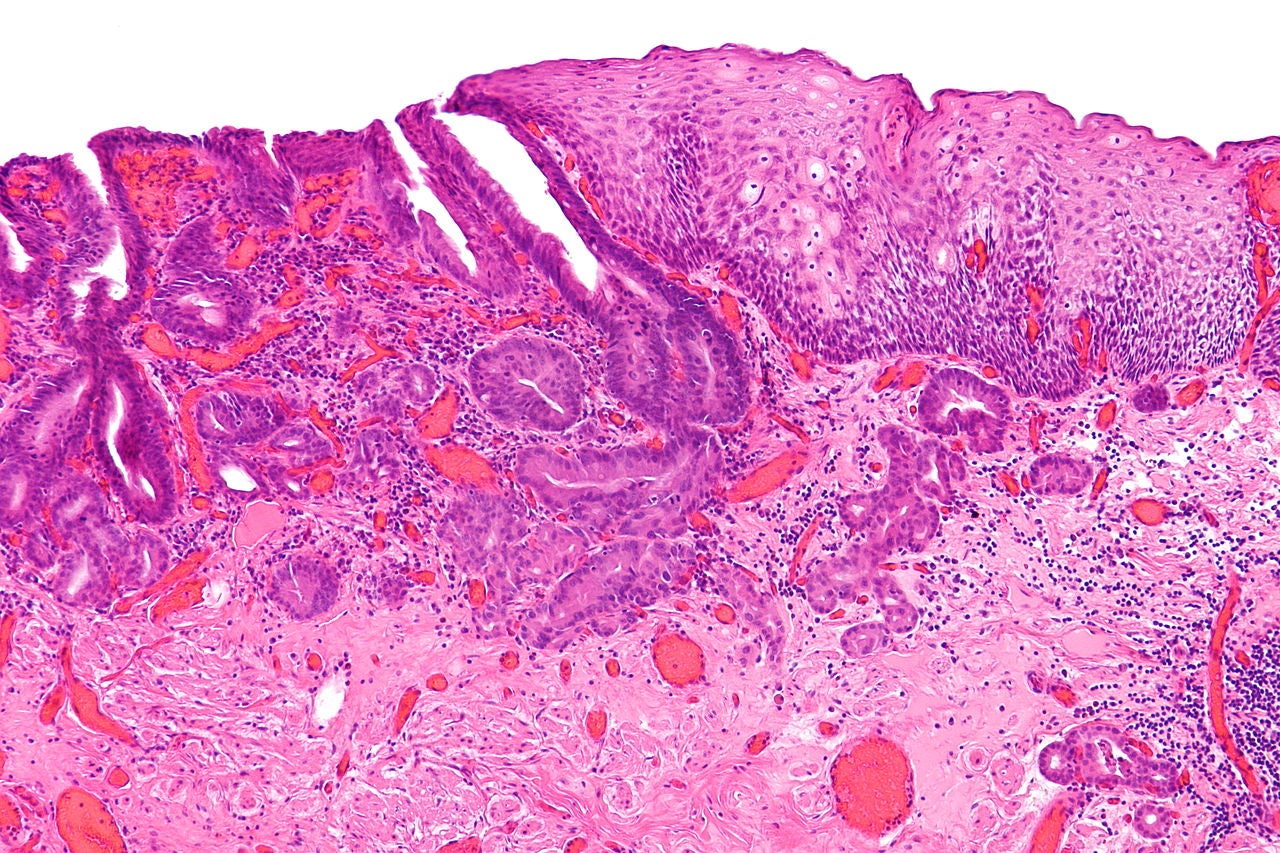
Amgen has reported that its antibody bemarituzumab and chemotherapy combination treatment from a trial in patients with FGFR2b+ gastric and gastroesophageal cancers, met the secondary endpoint.
As part of the Phase II FIGHT trial, bemarituzumab plus chemotherapy (mFOLFOX6) versus chemotherapy alone was evaluated in patients with FGFR2b-positive, HER2-negative frontline advanced gastric or gastroesophageal junction cancers (GEJ).

Discover B2B Marketing That Performs
Combine business intelligence and editorial excellence to reach engaged professionals across 36 leading media platforms.
Amgen’s updated data includes the secondary endpoint and median overall survival (OS), which was reached with longer follow-up, in addition to assessment of patient subgroups.
With a median follow-up of 12.5 months, it was found that patients who took the treatment along with a chemotherapy combination lived a median of 19.2 months, compared to 13.5 months for chemotherapy alone, in 155 randomised subjects.
In patients with more than 10% of tumour cells overexpressing FGFR2b by immunohistochemistry, the median OS for bemarituzumab was observed to be 25.4 months versus 11.1 months in an exploratory pre-specified subgroup analysis of 96 patients.
Furthermore, the incidence of all grade adverse events was similar in the bemarituzumab plus chemotherapy arm of the study compared to chemotherapy only arm.

US Tariffs are shifting - will you react or anticipate?
Don’t let policy changes catch you off guard. Stay proactive with real-time data and expert analysis.
By GlobalDataIn the bemarituzumab plus chemotherapy arm the incidence of corneal adverse events was higher, versus the chemotherapy arm.
Amgen Research and Development executive vice-president David Reese said: “Gastric cancer is the fourth leading cause of cancer death globally and 30% of frontline HER2-negative gastric cancer patients have tumours that overexpress FGFR2b.
“These updated results underscore the benefits that bemarituzumab plus chemotherapy may bring to patients who have been fighting this aggressive disease with chemotherapy alone. We now look forward to advancing bemarituzumab into Phase III development.”
The potential first-in-class antibody bemarituzumab has been designed to block specific fibroblast growth factors from binding and activating FGFR2b.
Zai Lab (Shanghai) secured an exclusive license to develop and commercialise the antibody in Greater China. The company collaborated with Five Prime on the Phase II FIGHT trial in Greater China.





